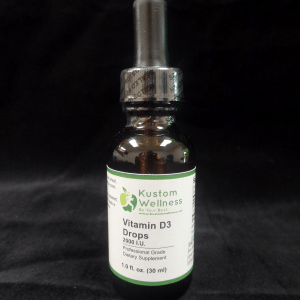L-Lysine / 500 mg
L-Lysine capsules may be useful to supplement diets with L-lysine
DESCRIPTION
L-Lysine supplies 500 mg of the amino acid in each tablet.
FUNCTIONS
Amino acids have many functions in the body. They are the building blocks for all body proteins – structural proteins that build muscle, connective tissues, bones and other structures, and functional proteins in the form of thousands of metabolically active enzymes. Amino acids provide the body with the nitrogen that is essential for growth and maintenance of all tissues and structures. Proteins and amino acids also serve as a source of energy, providing about 4 calories per gram.
Aside from these general functions, individual amino acids also have specific functions in many aspects of human physiology and biochemistry.
Lysine is required for collagen cross-linking. Collagen cross-linking is important for resiliency and elasticity of the collagen and elastin present in all connective tissues and blood vessel walls. During formation of new collagen, fibroblasts secrete immature collagen strands and a vitamin C- and copper-requiring enzyme, lysyl oxidase. Lysyl oxidase oxidizes the free amino group of the immature collagen’s lysyl side chains. Once oxidized, these lysyl side chains spontaneously engage in various reactions between collagen strands to bring about cross-linking. As a result, a complex network of collagen strands is formed, providing elasticity and resiliency.
Another important role of lysine is its precursor function for L-carnitine. L-carnitine is necessary for fatty acid metabolism and energy production in cardiac and skeletal muscle. It is involved in fatty acid oxidation as part of the carnitine shuttle. L-carnitine shuttles fatty acids from the cytosol (the cell fluid) into the mitochondria (the cell’s powerhouses) for oxidation and energy production.
Dietary lysine is present in the form of proteins, mainly from dairy and animal origin. Vegetarian diets tend to provide little lysine, because vegetable proteins, including legumes, are often low in lysine.
Call for Pricing
Product Description
L-Lysine capsules may be useful to supplement diets with L-lysine
DESCRIPTION
L-Lysine supplies 500 mg of the amino acid in each tablet.
FUNCTIONS
Amino acids have many functions in the body. They are the building blocks for all body proteins – structural proteins that build muscle, connective tissues, bones and other structures, and functional proteins in the form of thousands of metabolically active enzymes. Amino acids provide the body with the nitrogen that is essential for growth and maintenance of all tissues and structures. Proteins and amino acids also serve as a source of energy, providing about 4 calories per gram.
Aside from these general functions, individual amino acids also have specific functions in many aspects of human physiology and biochemistry.
Lysine is required for collagen cross-linking. Collagen cross-linking is important for resiliency and elasticity of the collagen and elastin present in all connective tissues and blood vessel walls. During formation of new collagen, fibroblasts secrete immature collagen strands and a vitamin C- and copper-requiring enzyme, lysyl oxidase. Lysyl oxidase oxidizes the free amino group of the immature collagen’s lysyl side chains. Once oxidized, these lysyl side chains spontaneously engage in various reactions between collagen strands to bring about cross-linking. As a result, a complex network of collagen strands is formed, providing elasticity and resiliency.
Another important role of lysine is its precursor function for L-carnitine. L-carnitine is necessary for fatty acid metabolism and energy production in cardiac and skeletal muscle. It is involved in fatty acid oxidation as part of the carnitine shuttle. L-carnitine shuttles fatty acids from the cytosol (the cell fluid) into the mitochondria (the cell’s powerhouses) for oxidation and energy production.
Dietary lysine is present in the form of proteins, mainly from dairy and animal origin. Vegetarian diets tend to provide little lysine, because vegetable proteins, including legumes, are often low in lysine.







Reviews
There are no reviews yet.